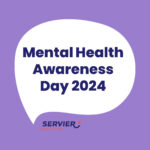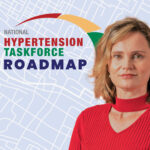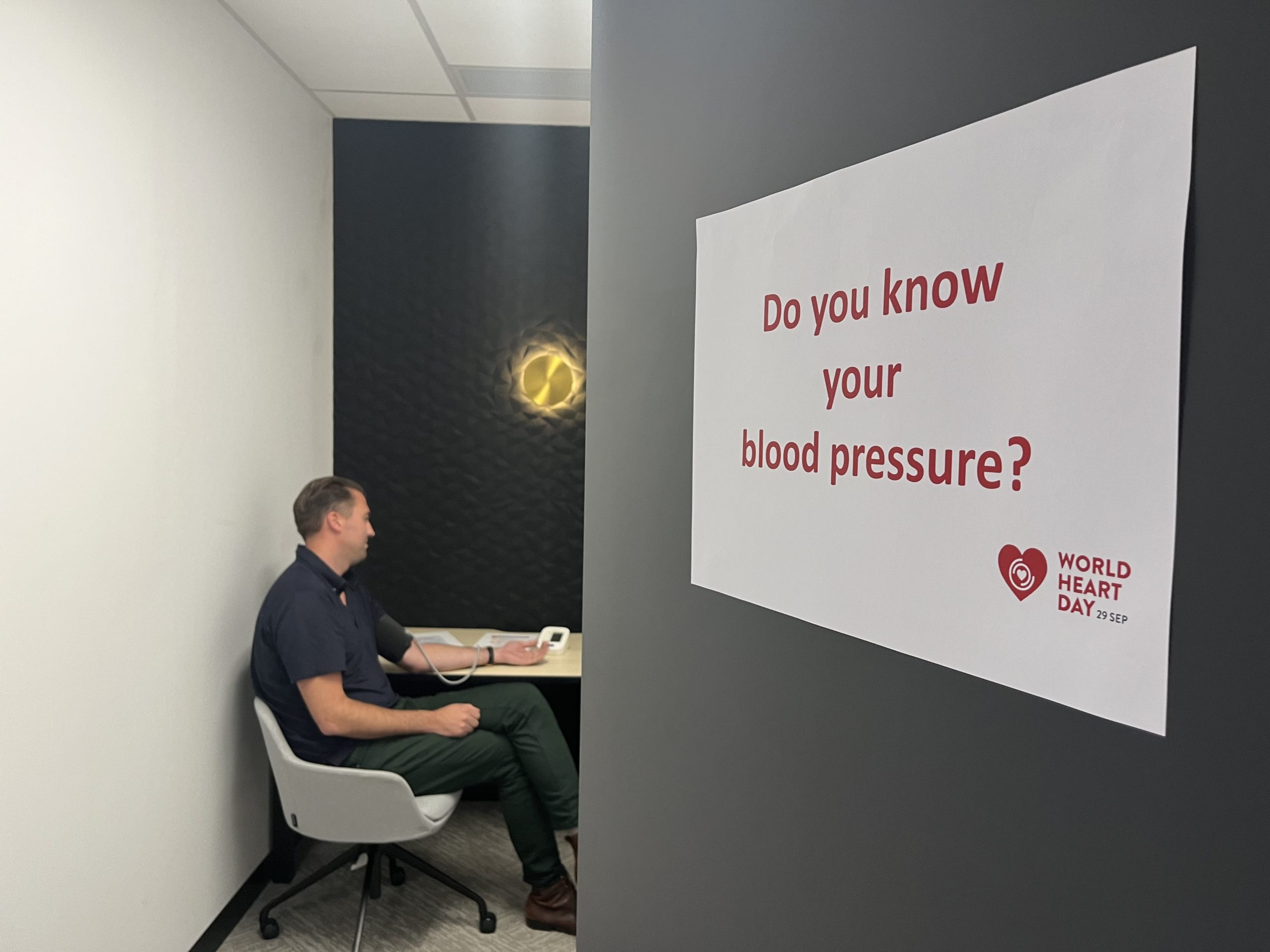
World Heart Day is today, Thursday 29 September 2022, and aims to raise global awareness of the importance of heart health, and the actions that we can all take to both prevent & control Cardiovascular Disease (CVD), which accounts for nearly half of all the world’s deaths from non-communicable diseases (NCDs).2
On this important day, we are urged to consider how best to use our heart for humanity, nature, and for ourselves.
The World Health Organization (WHO) defines CVD as heart conditions that include diseased blood vessels, structural problems, and blood clots.3
Access to treatment and support for CVD varies substantially throughout the world, with more than 75% of CVD deaths occurring in low-to-middle-income countries,2 which are commonly plagued by access-related issues.
Air pollution is responsible for 7 million – or 25% – of all CVD-related deaths each year.2 We can all contribute to making the planet healthier by walking or cycling rather than travelling by bus or car. When done by lots of people, this small contribution can have a big impact by reducing emissions and improving air quality.
Exercise, meditation, & getting adequate, quality sleep, can help to minimise stress – proven to increase one’s risk of having a heart attack – and to maximise heart health.
Monitoring blood pressure at Servier Australia for World Heart Day
We marked World Heart Day today by inviting our head office staff to take a quick and painless blood pressure (BP) measurement, given high BP constitutes one of the major modifiable risk factors for CVD.
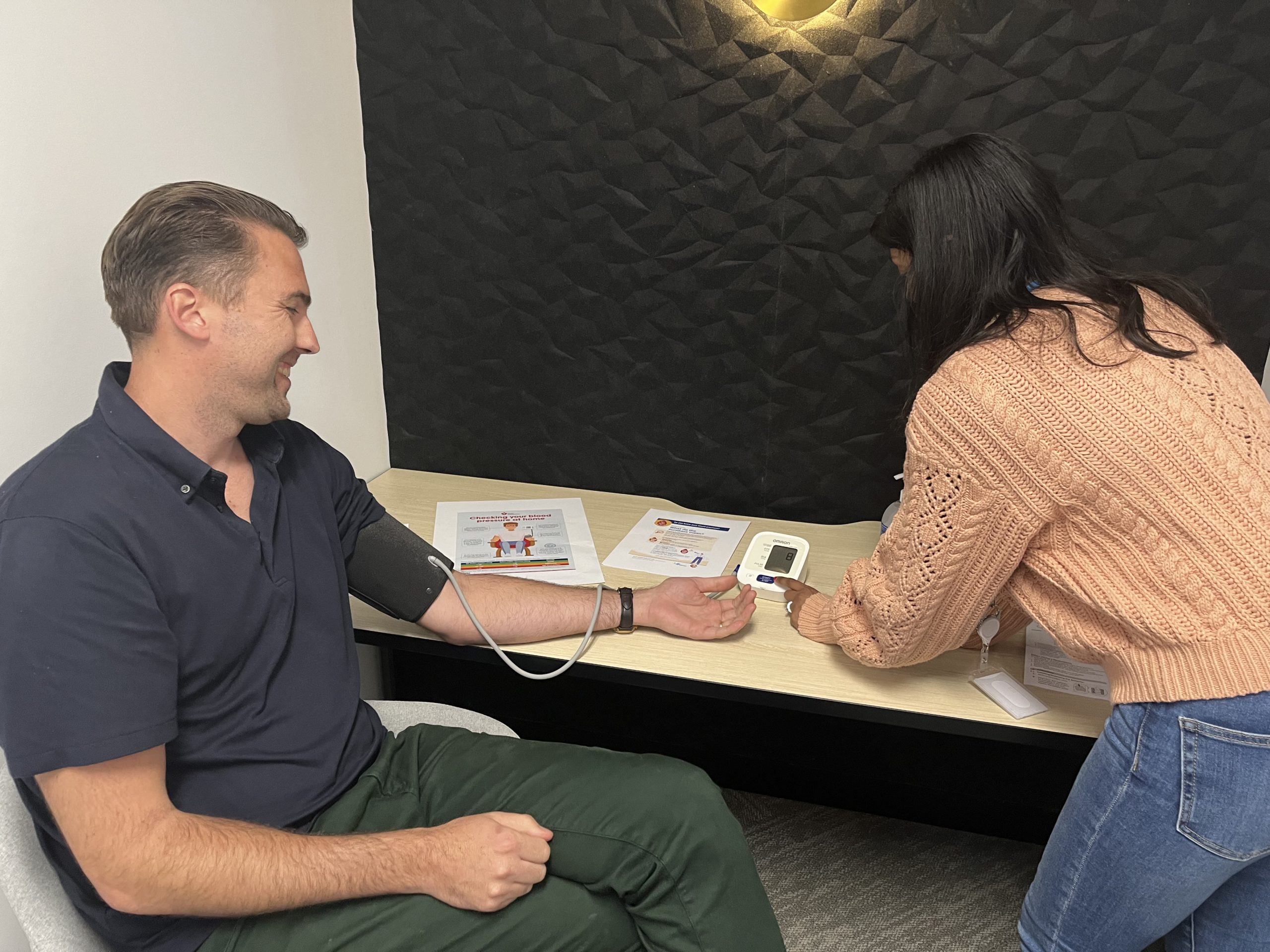
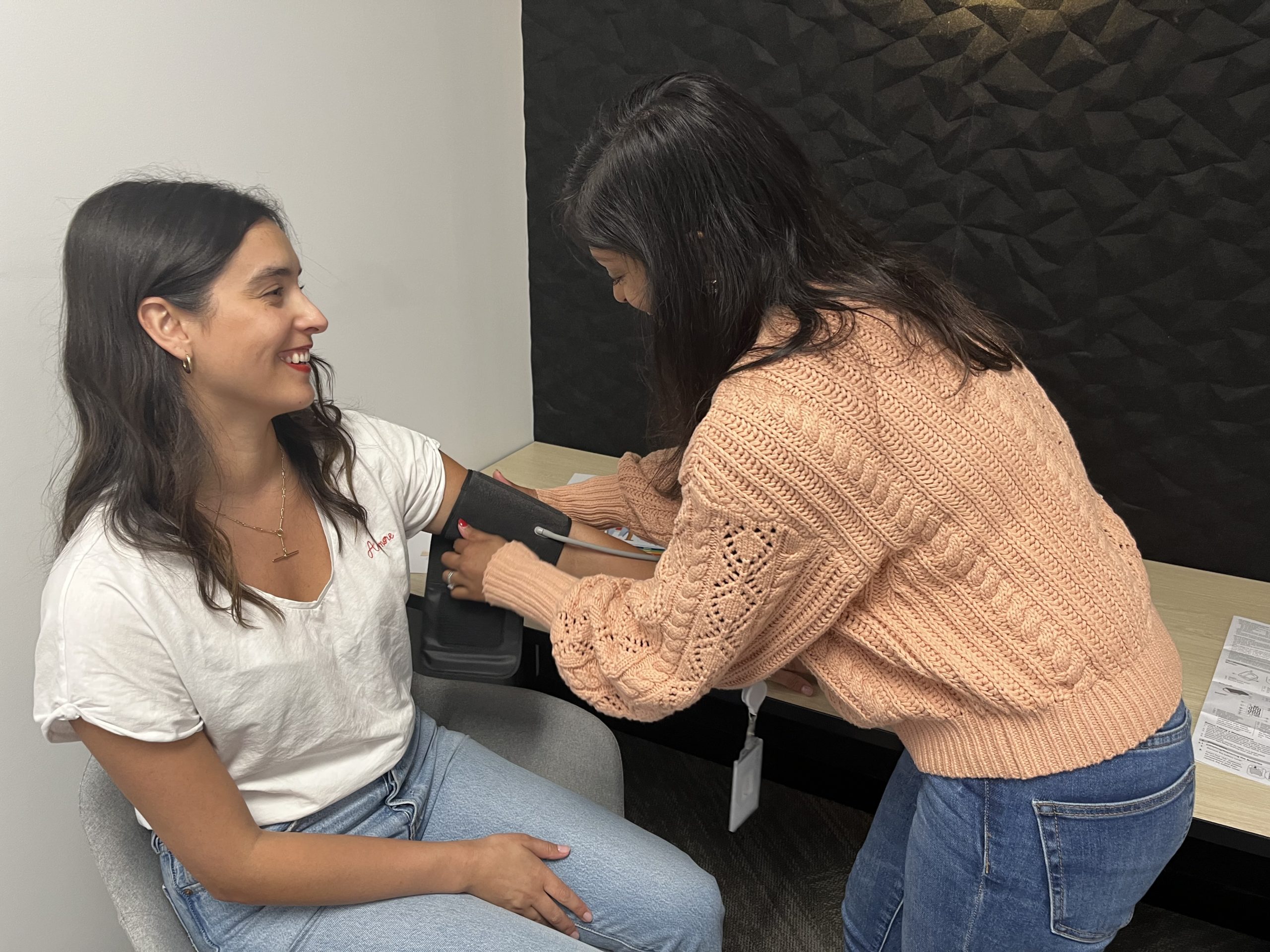
Worringly, one in two Australians are living with high BP, and don’t even know it!4 When left untreated, high BP heightens your risk of having a heart attack or stroke.5 In fact, approximately 54% of strokes, and 47% of coronary heart diseases worldwide are caused by high BP.5
At Servier Australia, we are committed to raising community awareness of the dangers and the risk factors for high BP, and the subsequent importance of regular BP monitoring.
Risk factors for high BP include:
- Age
- Excess weight
- Physical inactivity
- Smoking
- An unhealthy diet.
Eating a healthy balanced diet and remaining physically active can reduce your chance of developing high BP, and improve your overall heart health. You can also ask your doctor to check your BP and/or conduct a heart health check.
So be sure to follow your heart this World Heart Day by considering some simple actions to improve your heart health. To learn more about World Heart Day, head to: www.world-heart-federation.org.
References
- World Heart Federation. What is Cardiovascular Disease? 2022 [cited August 2022]; Available from: https://world-heart-federation.org/world-heart-day/cvd-causes-conditions/what-is-cvd/.
- World Heart Federation. About World Heart Day. 2022 [cited August 2022]; Available from: https://world-heart-federation.org/world-heart-day/about-whd/.
- World Health Organization (WHO). Cardiovascular diseases (CVDs). 2022 [cited August 2022]; Available from: https://www.who.int/news-room/fact-sheets/detail/cardiovascular-diseases-(cvds).
- Carnagarin, R., et al., May Measurement Month 2019: an analysis of blood pressure screening results from Australia, European Heart Journal Supplements, Volume 23, Issue Supplement_B, May 2021, Pages B18–B20, https://doi.org/10.1093/eurheartj/suab016
- Wu CY, Hu HY, Chou YJ, Huang N, Chou YC, Li CP. High Blood Pressure and All-Cause and Cardiovascular Disease Mortalities in Community-Dwelling Older Adults. Medicine (Baltimore). 2015 Nov;94(47):e2160. doi: 10.1097/MD.0000000000002160. PMID: 26632749; PMCID: PMC5059018.
